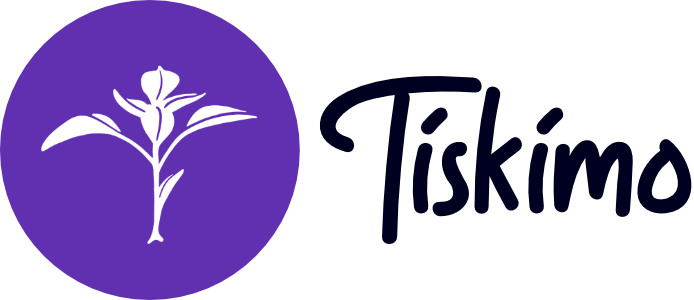When we receive a neurodivergent diagnosis, it can feel like seeing ourselves clearly for the first time. Many clients tell me it brings a sense of recognition, even relief:
“I’m not broken, just different.”
But with this new self-awareness often comes something else – a reckoning with the models that shape how society views us.
What are the models and why do they matter?
The neurodiversity model recognises thinking, learning, and processing differences as natural and valuable variations in the human experience. This model invites us to celebrate uniqueness, acknowledge strengths alongside challenges, and resist the limiting notion that there is one ‘correct’ way to be in the world. Each neurodivergent person has a distinct profile; there is no single story, no universal experience.
Alongside this is the social model of disability, which places emphasis on the barriers created by a world designed around a set of perceived norms and the impact this has on people whose brains are not wired as ‘expected’. This model states that when environments and expectations exclude neurodivergent needs, it is not the person who is broken, but the system that is unfit. Reasonable adjustments, from this perspective, are therefore not special privileges, but essential steps towards equity and inclusion.
Then there is the medical model. This describes neurodivergent people as a list of impairments and challenges – viewing the ‘problem’ as residing within them and requireing diagnosis, treatment, or correction to align with normative functioning. This model is currently the dominant one in society, and as a result, a formal diagnosis is often required to access support. However, it typically reduces the individual to a list of ‘impairments’, describing people as ‘disordered’, overlooking the nuanced reality of their lived experience and having little or no interest (certainly during diagnosis) in the strengths that frequently accompany their particular profile – and this is why I, and many in the neurodivergent community, take issue with this model.
Understanding the models around neurodivergent conditions is important because they shape the way the world interacts with us, what is available to us and how support services engage with us.
Personally, I am deeply rooted in the Neurodiversity model, and consequently, I believe coaching is not about fixing or changing you. It’s about supporting you to understand how you work best, what truly matters to you, and how to navigate life in a way that honours your authentic self.
For many of my clients, especially those diagnosed in adulthood, the cognitive dissonance that comes from exposure to the impact of each of these models can be both confusing and exhausting – one moment liberating, the next destabilising.
Neuroinclusive coaching provides a space to make sense of that complexity, to embrace it without fear or shame. It offers a place to ask the awkward questions, to express the feelings which are coming up as you begin to gain clarity and agency.
Language really does matter
Take Autism, for example. A diagnosis of Autism Spectrum Disorder (ASD) is still common in clinical settings, but many in the community prefer the term Autism Spectrum Condition (ASC). The difference may seem unimportant, but the impact is profound. “Disorder” implies brokenness. “Condition” is neutral, even respectful. As Meng-Chuan Lai puts it, it:
“… allows for the idea of being differently wired neurologically, leading to both cognitive strengths and difficulties.”
Too often, traits associated with neurodivergent conditions are pathologised, while similar traits in peers are celebrated. An Autistic person might be described as “controlling,” while their peer, displaying the exact same behaviour, as “decisive.” Someone with ADHD might be labelled “impulsive,” whereas for their peer the equivalent may be “spontaneous.” These double standards create invisible barriers and contribute to internalised shame.
The truth is, we all live with a complex mix of traits and tendencies. Neurodivergent people may experience the world differently – our sensory responses, motivations, social expectations, and communication styles might not align with dominant norms. But when we reframe difference through a lens of strength and diversity rather than pathology, something shifts. And even minor adjustments in our environment or the expectations of people around us can lead to major improvements in confidence, well-being, and productivity.
It’s important to acknowledge that no single model totally works. One speaker at a recent webinar I attended put it bluntly:
“There are two models of ADHD, and they’re both wrong.”
The Medical model says ADHD is a disorder best treated with medication and managed by professionals. The Social model says society is the problem, and if it made space for us, we’d thrive. The truth is probably somewhere in between. Yes, some of us benefit from medication or therapy. Yes, society creates unnecessary obstacles. Both models hold truths.
So, where next?
These models matter because they shape how we see ourselves, how others see us, and what support we can access. None of them are perfect, but they all influence access to support, the language we use and our lived experience.
Whether you’re newly diagnosed, questioning, or simply trying to make sense of a shifting sense of self, I invite you to explore these models with curiosity. Challenge them. Question the language, the assumptions, the systems. Because in doing so, we can start to fix the environments we’re in, and we are then in a stronger position to find a more truthful, affirming understanding of who we are and live it.
Coaching with me offers a space to do just that: to unpack your experience without judgement; to explore what it means to live authentically; and to discover practical ways to move forward that honour your neurodivergent profile, rather than working against it. If you’re ready to explore how you work best, not how the world thinks you should do get in touch.

